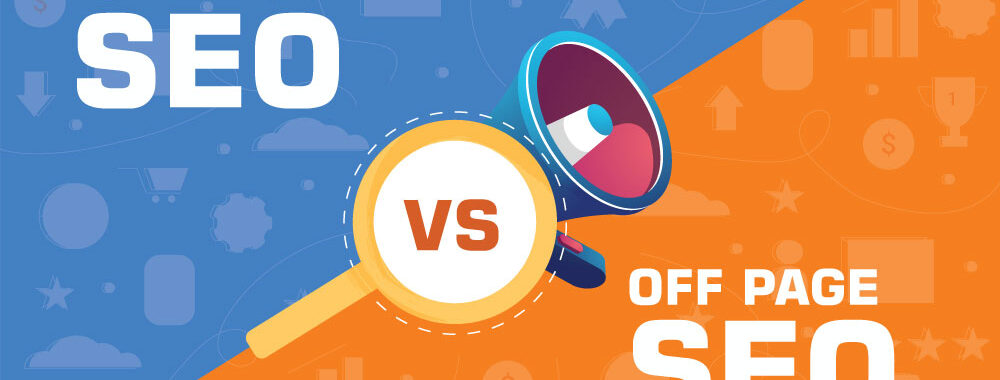Introduction
Search Engine Optimization (SEO) is the backbone of digital marketing, helping websites rank higher on search engines like Google, Bing, and Yahoo. Within SEO, two primary strategies determine success: On-Page SEO and Off-Page SEO. While both are crucial, they serve different purposes and work together to improve a website’s visibility. Understanding the key differences between On-Page and Off-Page SEO can help businesses and website owners implement a comprehensive SEO strategy.
This article explores On-Page and Off-Page SEO, their key components, major differences, and how to balance both for optimal search rankings.
What is On-Page SEO?
On-Page SEO refers to the optimization techniques applied directly on a website to improve its search engine ranking. It focuses on content quality, structure, and technical elements that make a website user-friendly and search engine-friendly. The primary goal of On-Page SEO is to ensure that search engines can easily crawl and understand the website’s content.
Key Factors of On-Page SEO
High-Quality Content: Content should be valuable, relevant, and optimized with target keywords. Well-researched and engaging content attracts users and search engines alike.
Title Tags & Meta Descriptions: These elements help search engines and users understand what the page is about. Including keywords in title tags and meta descriptions improves click-through rates.
URL Structure: Short, descriptive, and keyword-rich URLs enhance user experience and search engine rankings.
Header Tags (H1, H2, H3, etc.): Proper use of header tags helps organize content and makes it easier to read for both users and search engines.
Keyword Optimization: Using relevant keywords naturally within the content, titles, and subheadings improves ranking chances.
Internal Linking: Linking to other pages within your website helps with navigation and encourages users to spend more time on your site.
Mobile-Friendliness: With Google’s mobile-first indexing, a mobile-friendly website is crucial for SEO success.
Page Speed Optimization: A fast-loading website provides a better user experience and is favored by search engines.
Image Optimization: Using alt text, proper file names, and compressed images improves accessibility and page load speed.
Technical SEO: This includes schema markup, structured data, canonical tags, XML sitemaps, and proper indexing to ensure search engines can crawl and rank the site effectively.
What is Off-Page SEO?
Off-Page SEO refers to external factors that impact a website’s ranking, primarily focusing on building authority, trust, and relevance through activities outside the website itself. Off-Page SEO strategies enhance a site’s credibility, making it more appealing to search engines and users.
Key Factors of Off-Page SEO
Backlink Building: Getting high-quality backlinks from authoritative sites is a crucial Off-Page SEO factor. Search engines view backlinks as votes of confidence.
Social Media Engagement: Social signals like shares, likes, and comments can indirectly improve SEO by increasing brand visibility and traffic.
Guest Blogging: Writing high-quality articles for reputable websites helps gain backlinks and expand audience reach.
Influencer Marketing: Partnering with influencers to promote content increases exposure and credibility.
Brand Mentions: Even without backlinks, brand mentions on other websites help build authority.
Local SEO (Google My Business & Citations): Optimizing a Google My Business profile and getting listed in local directories improve local search rankings.
Forum Participation & Community Engagement: Answering questions on platforms like Quora and Reddit helps establish authority in a niche.
Press Releases & PR Marketing: Publishing press releases and getting featured in media can enhance a brand’s reputation.
Social Bookmarking: Sharing website content on platforms like Reddit, Pinterest, and Mix can drive traffic and increase visibility.
Content Marketing & Video Marketing: Creating shareable infographics, videos, and podcasts boosts engagement and SEO impact.
Key Differences Between On-Page SEO & Off-Page SEO
Factor
On-Page SEO
Off-Page SEO
Focus
Optimizing elements on the website
Building authority and relevance outside the website
Main Goal
Improve website usability and search engine understanding
Increase credibility and influence search engine perception
Techniques
Content optimization, keyword research, internal linking, technical SEO
Link building, social media, guest blogging, PR marketing
Control
Directly controlled by website owner
Indirectly influenced through external efforts
Timeframe
Changes reflect quickly (weeks)
Takes longer to show impact (months)
While On-Page SEO ensures search engines can properly understand and rank a website, Off-Page SEO helps improve authority and ranking power.
Which is More Important: On-Page or Off-Page SEO?
Neither On-Page nor Off-Page SEO alone is sufficient for ranking success. A balance between both is key to long-term SEO success.
If a website has excellent On-Page SEO but no Off-Page SEO, it may struggle to rank against competitors with strong authority.
If a website has strong Off-Page SEO but poor On-Page SEO, search engines may not be able to understand or properly rank it.
The best approach is to optimize On-Page SEO first to ensure a solid foundation before investing in Off-Page SEO strategies.
Best Practices for Balancing On-Page & Off-Page SEO
Start with On-Page SEO: Ensure technical SEO, keyword optimization, mobile-friendliness, and high-quality content are in place before focusing on external efforts.
Develop a Content Marketing Strategy: Create shareable, high-value content to naturally attract backlinks and social shares.
Focus on High-Quality Backlinks: Avoid spammy backlinks and prioritize reputable sources.
Engage with Online Communities: Build authority by answering industry-related questions on forums and social media.
Monitor Performance: Use tools like Google Analytics, Ahrefs, and SEMrush to track On-Page and Off-Page SEO performance.
Conclusion
Both On-Page and Off-Page SEO play vital roles in improving a website’s search rankings. On-Page SEO ensures a well-structured, optimized, and user-friendly site, while Off-Page SEO builds trust, authority, and external validation. By balancing both strategies, businesses can create a strong online presence, increase organic traffic, and ultimately achieve better search rankings.
A successful SEO strategy requires continuous effort, from refining website content and optimizing technical aspects to building backlinks and engaging in online communities. Prioritizing both On-Page and Off-Page SEO will ensure long-term growth and success in search engine rankings.
By following these strategies and maintaining a holistic approach to SEO, businesses and website owners can build a sustainable online presence that stands out in search engine results.
